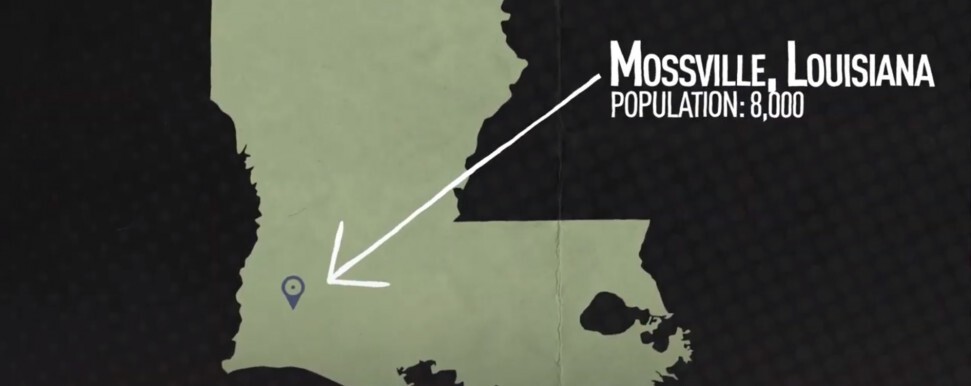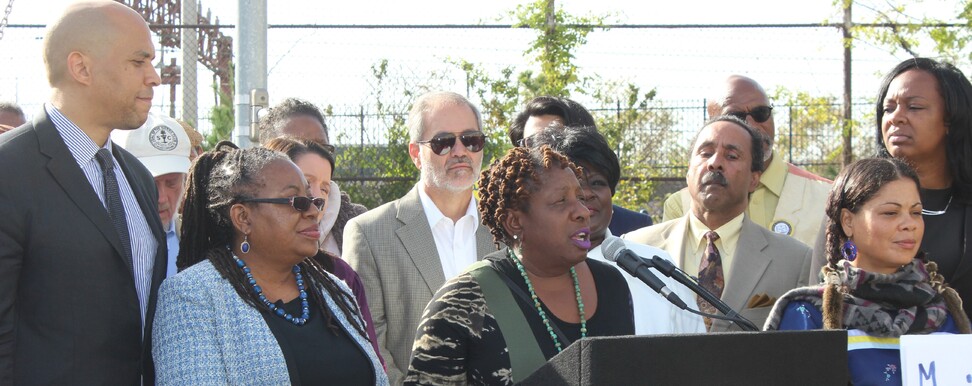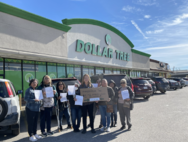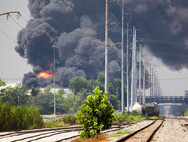















At EJHA, we stand for environmental justice for all!
May 8, 2025 A new year-long study from the Campaign for Healthier Solutions (CHS) claims that many popular products found at the biggest dollar store chains across the country contain toxic chemicals. The report showed that nearly 50 personal care, baby, beauty, and cleaning products were found to have toxic chemicals. Many of these products were kids’ toys or baby products, which raises concerns for parents – especially parents of young kids, who often put things in their mouths."Busy parents shouldn't have to scan the ingredients list of every product they buy to make sure it's safe for our families,” Yolanda Brown Alston, director of workforce programs at Harambee House, said in a news release. “Dollar stores need to step up on chemical safety and provide quality products that add value to our communities.” May 7, 2025 La Campaña para Soluciones más Saludables / Campaign for Healthier Solutions (CHS, por sus siglas en inglés) publicó hoy los resultados del esfuerzo de todo un año para recopilar, analizar y examinar los productos de las tiendas del dólar en busca de sustancias químicas preocupantes. Los productos preocupantes resaltados que se compraron en Dollar Tree/Family Dollar y/o Dollar General incluyen: Loción para bebé “Baby Shark” que contiene un químico liberador de formaldehído; crema hidratante diaria que contiene un producto químico prohibido en los cosméticos europeos; pulseras con iluminación, rosas de plástico y mini cubetas de dulces contenían plomo; los productos infantiles hechos de cloruro de polivinilo o PVC y los recibos de compra de ambas tiendas del dólar contenían bisfenol-S. May 7, 2025 The Campaign for Healthier Solutions (CHS) today published the results of a year-long effort to collect, test, and screen dollar store products for chemicals of concern. Highlighted products of concern purchased at Dollar Tree/Family Dollar and/or Dollar General include: “Baby Shark” baby lotion containing a formaldehyde-releasing chemical; daily moisturizer containing a chemical banned in European cosmetics; light-up children’s bracelets, plastic roses and mini candy pails containing lead; children’s products made with polyvinyl chloride or PVC, and receipts containing bisphenol-S. Published the week of Mother’s Day, “Product Testing for the People: Pitfalls, Persistence, and Progress in Transforming Dollar Stores” provides safe shopping tips for families and actionable recommendations for Dollar Tree and Dollar General to expand, improve, and enforce their chemical policies. The report also highlights loopholes in federal law that allow companies to sell products containing chemicals of concern, showing the importance of corporate action. Take action! March 11, 2025 The U.S. Environmental Protection Agency (EPA) announced Thursday that it plans to rehash regulations under the Risk Management Program (RMP). The decision comes after lobbyists for the chemical industry sent a letter requesting the agency weaken the rule requiring nearly 12,000 highly hazardous industrial facilities to prevent and plan for chemical disasters. The EPA is bending to the will of corporate lobbyists who are seeking to eliminate stronger rules finalized in 2024. These more protective rules were the result of years of public debate and incorporated input from industry and the public alike, including advocacy by environmental justice, labor, occupational and public health, and environmental organizations. Year-long study reveals toxic chemicals in popular dollar store products
Las pruebas impulsadas por la comunidad nuevamente revelan sustancias químicas preocupantes en los productos de las tiendas del dólar
Community-driven testing again reveals chemicals of concern in dollar store products
Trump Administration’s Decision to Rehash Chemical Disaster Prevention Rules Will Endanger Millions of Workers and Fenceline Community Residents



